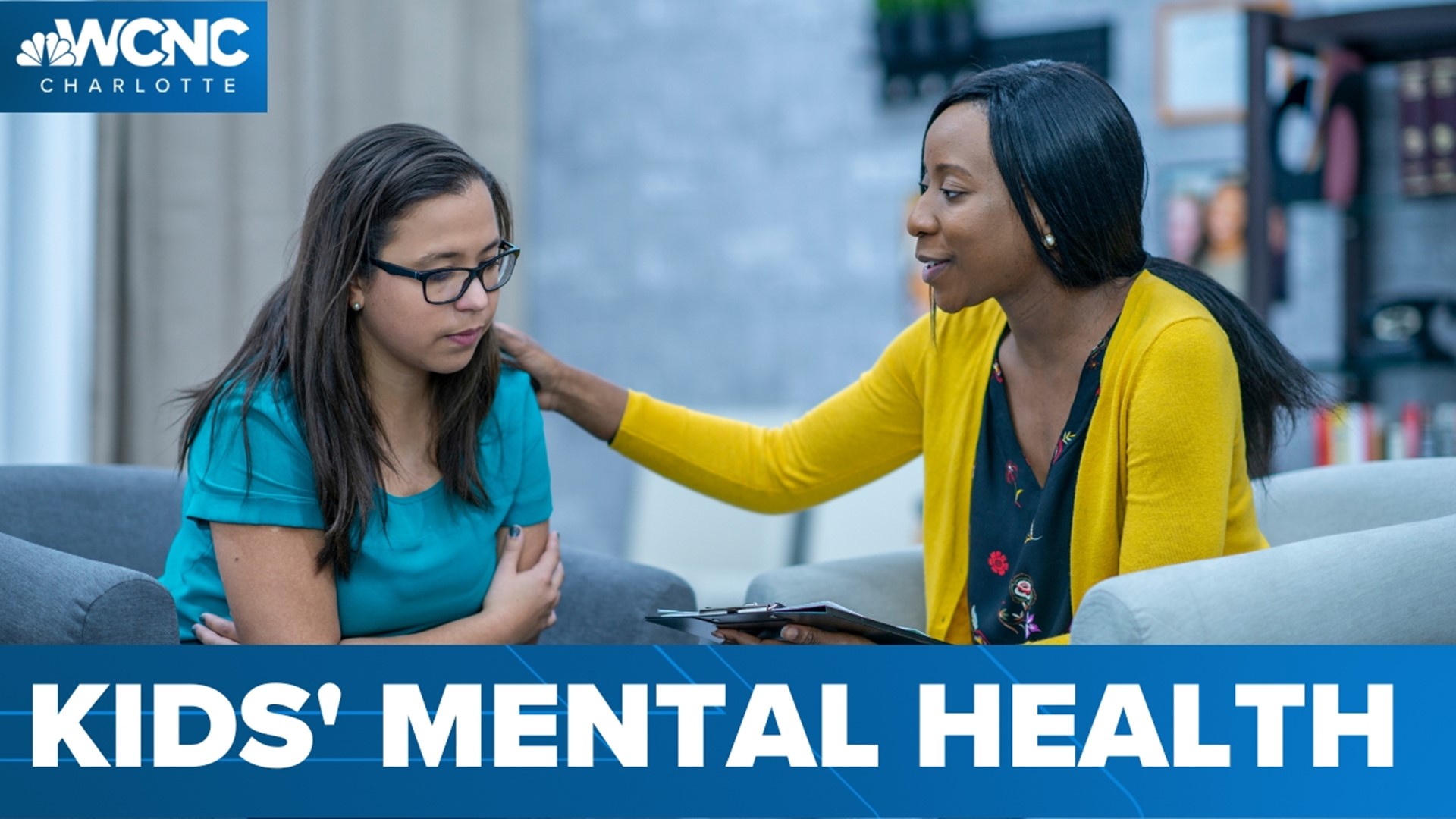CHARLOTTE, N.C. — Editor's Note: This story discusses suicide. Reader discretion is advised.
Saturday is the last day of Mental Illness Awareness Week. Advocates say shining a light on the topic and working to remove the stigma around mental illness is important year-round.
That’s because suicide is among the top five leading causes of death for people aged ten to 65 in the state. The North Carolina Department of Health and Human Services released a new plan to lower those numbers.
As mental health awareness week ends, doctors and advocates say the conversation needs to continue. State leaders hope to make suicide prevention training as common as CPR training.
“It’s not making you the person who is the therapist or the counselor but it’s allowing you to identify somebody that is struggling and help get them to help,” Anne Geissinger, North Carolina’s suicide prevention program coordinator said.
Increasing community awareness is just one of the state’s focus areas. The comprehensive plan comes at a critical time, with suicide attempts leading to 11,000 emergency department visits and 3,000 hospitalizations in North Carolina in 2020.
MORE NEWS: 'The American dream' | Novant Health hiring international nurses to help offset the nursing shortage
“Over the last ten years suicide deaths in North Carolina have risen by an alarming 26%,” she said. “Perhaps even more concerning is the 48% rise among youth ages 10 to 18.”
Kids’ lives were turned upside down during the pandemic. Doctors say the trends are concerning but not surprising. Pediatric emergency physician Dr. Christina Johns said there are steps parents can take to keep a situation from escalating to an emergency.
“What we know is if we can intervene earlier in the course of a mental illness, we can avoid that crisis points. That means starting to have conversations with your child to normalize the discussion about feelings and mental health and wellness,” Johns said.
She recommends parents who notice major changes in their child’s behavior or moods start with the school guidance counselor and pediatrician, getting them assessed sooner will open the door to necessary resources.
“We know that they can get back to being better soon they can feel well and be their authentic selves and that is how kids have the best chance of learning coping skills,” Johns said.
Keeping the spotlight on mental wellness all year round.
If you or a loved one are facing thoughts of suicide or self-harm, there is help readily available. You can call Suicide and Crisis Lifeline at 988 or chat with them online. There are also resources in North Carolina available here and in South Carolina available here.
Contact Chloe Leshner at cleshner@wcnc.com and follow her on Facebook, Twitter and Instagram.

